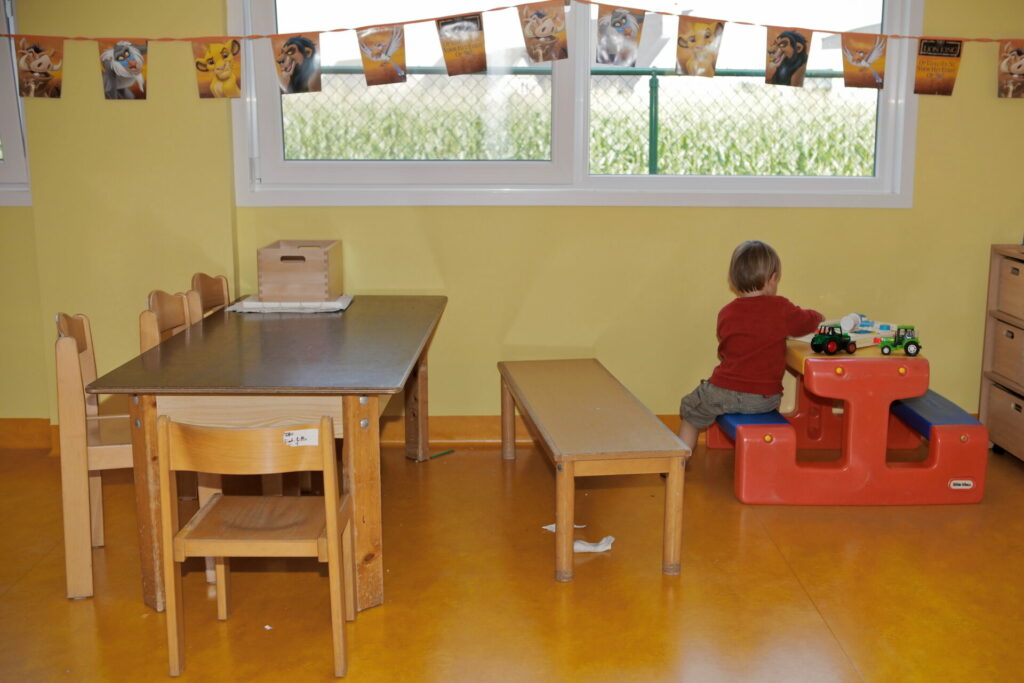Flanders has announced a new plan for childcare, a sector that has sounded the alarm bell for being under strain in recent months. While the plan may solve certain issues, some carers say it fails to address the real issues at hand.
The plan pushes for more equality and better working conditions (including increased wages) in Flemish nurseries and Dutch-speaking daycare centres in Brussels by increasing investments and restructuring the sector.
For this, the government is freeing up an additional €115 million as part of its budget announcement, however, the sector argued this figure is not enough to tackle the historic issues.
"This investment aims to guarantee better working conditions, higher subsidies and more availability for lower-income parents. The number of children per supervisor will not change for the time being," a statement from the group "the first 1,000 days," a collective of Dutch-speaking nurseries, read.
Not equipped for task
The group's name refers to the notion that the first 1,000 days (more commonly recognised as the first 24 months) of a child's life is the most pivotal period, as this is when the brain, body and immune system grow and develop most significantly.
It argues that the current childcare system is not adapted to the needs of children at this age and that nurseries are not given the support they need to provide the care these young toddlers need.

A carer in a nursery reading a story to children. Credit: Belga/ Virginie Lefour
The Flemish Government has been criticised for only investing €2.9 per hour per child in nurseries, three times less than countries such as Sweden. The region also has the highest child per carer ratio in Europe, creating what unions have called an "untenable situation that puts the health and safety of children in nurseries."
The plan, titled "childcare, safe and future-oriented" is based on the recommendations made by the audit by the research committee on childcare and Audit Flanders, conducted in light of reports that nurseries were able to stay open despite claims of child abuse, incidents that, in the sector's eyes, highlighted the dire situation in daycare centres.
Taking to the streets
To highlight the sector's discontent, the group "first 1,000 days" has urged parents, children and child carers to take to the streets in Brussels, Leuven and Ghent on Wednesday to call for better, quality childcare, and what it has called a "genuine Marshall Plan for quality childcare."
"We want recognition of the pedagogical importance of the 1,000 first days and structural changes and investments in childcare, starting from the needs of the child and the parent," a statement from the group read. "There are too many children per carer, so the children do not get enough individual attention."
According to the group's figures, in Leuven alone, to lower the child to carer ratio to the desired maximum of one child per six staff members (currently the maximum is one in nine), 250 additional carers are needed. Lowering this rate, it argued, is pivotal to lowering the workload.
Related News
The group argued that it wants a place at the negotiating table to help write the plan, a request which the government said it hears loud and clear and wants to fulfil, but that it first wants to focus on increasing investment for concrete measures and to work on reforms to ensure better quality and equal working conditions and wages across all 6,000 childcare centres.
"It is a first step for us to invest in higher wages and better working conditions because we know that the attractiveness of the profession is low and that this deters people from starting a career in a nursery, which creates a vicious circle of staff shortages and higher workloads," Carmen De Rudder, Crevits' spokesperson, told The Brussels Times.
She explained that the research committee determined that a discussion with the sector is needed on the child-carer ratio. "That is something we know and this will happen, but a pathway must be drawn up for this, the changes can't just take place overnight."

